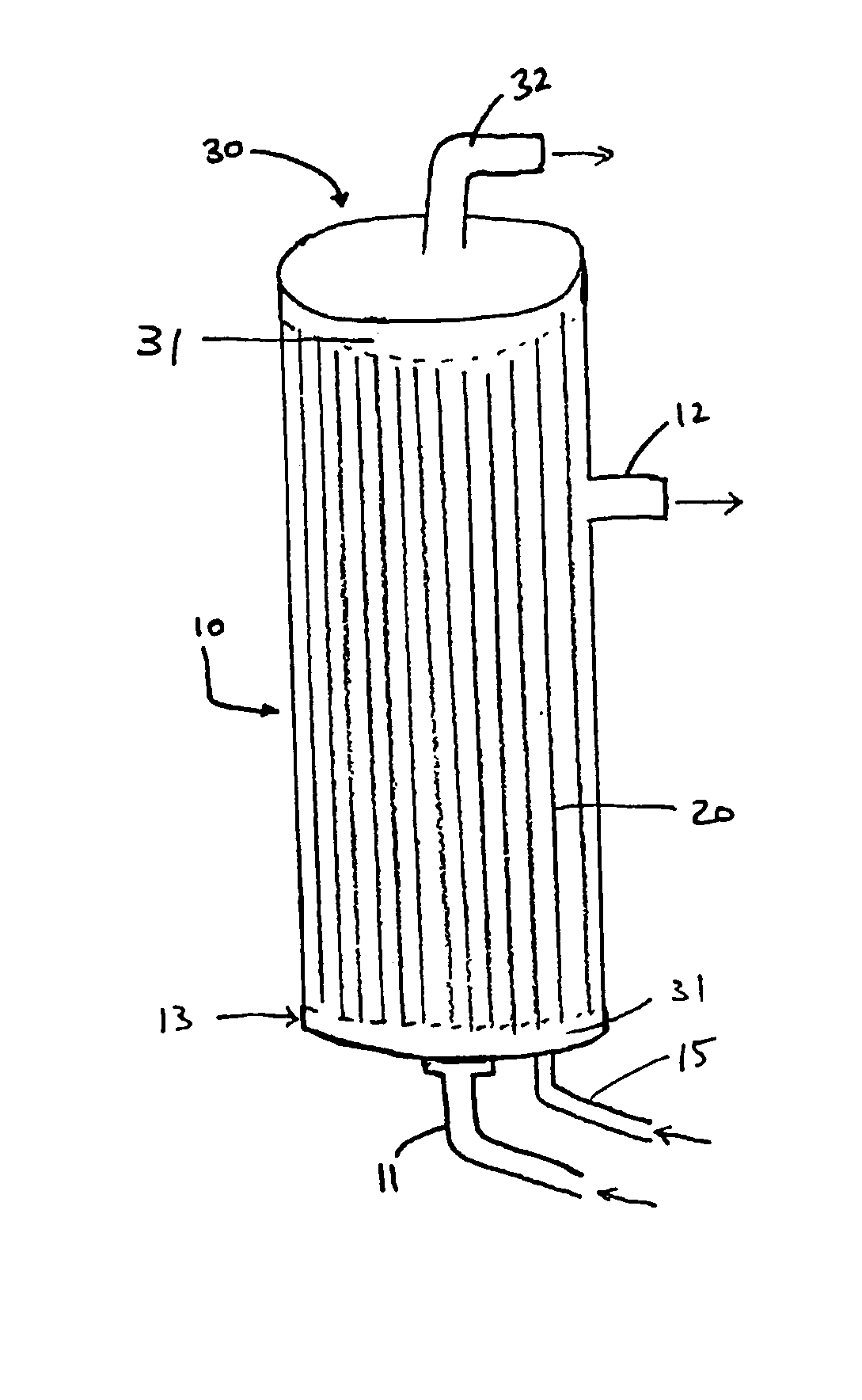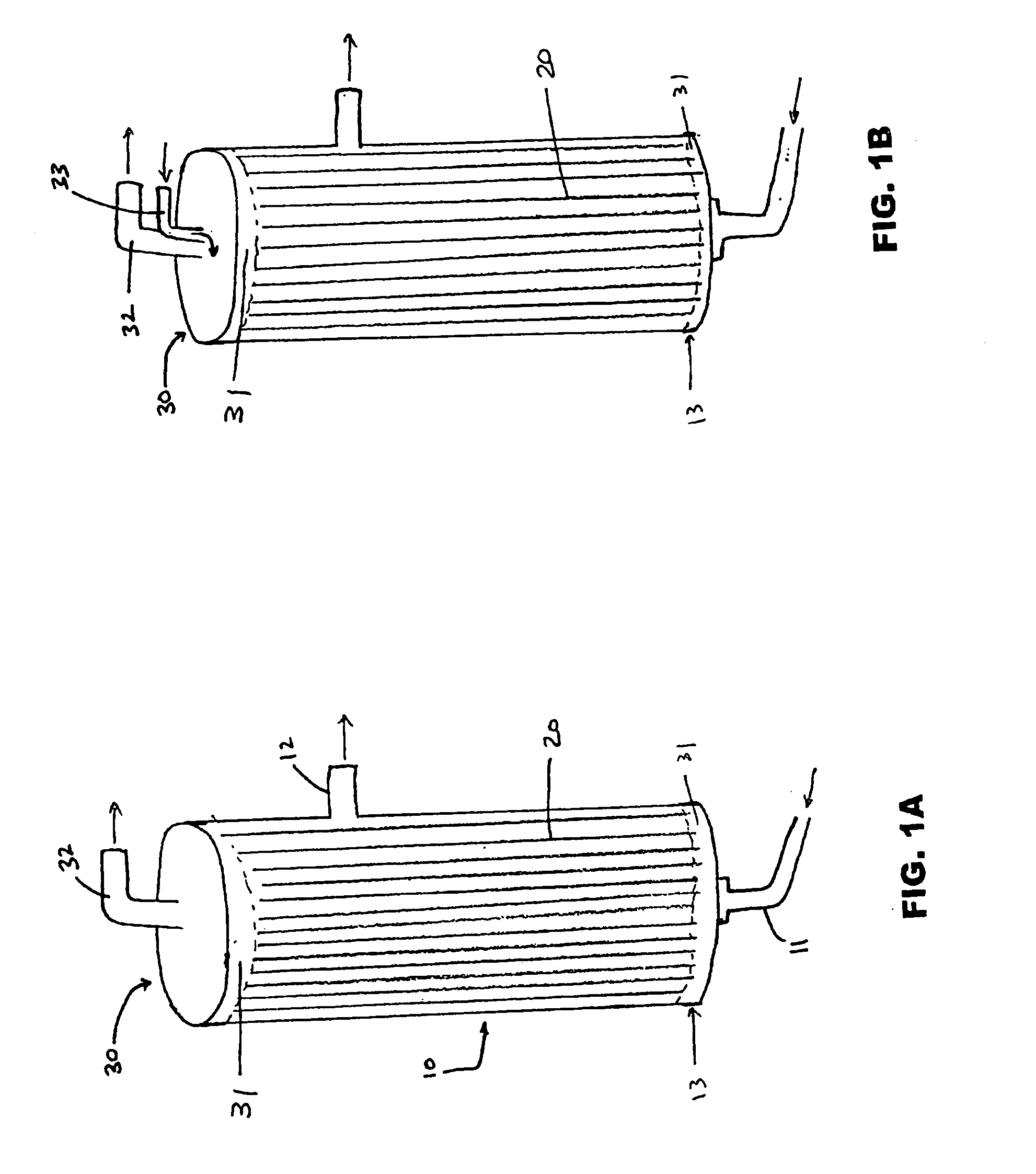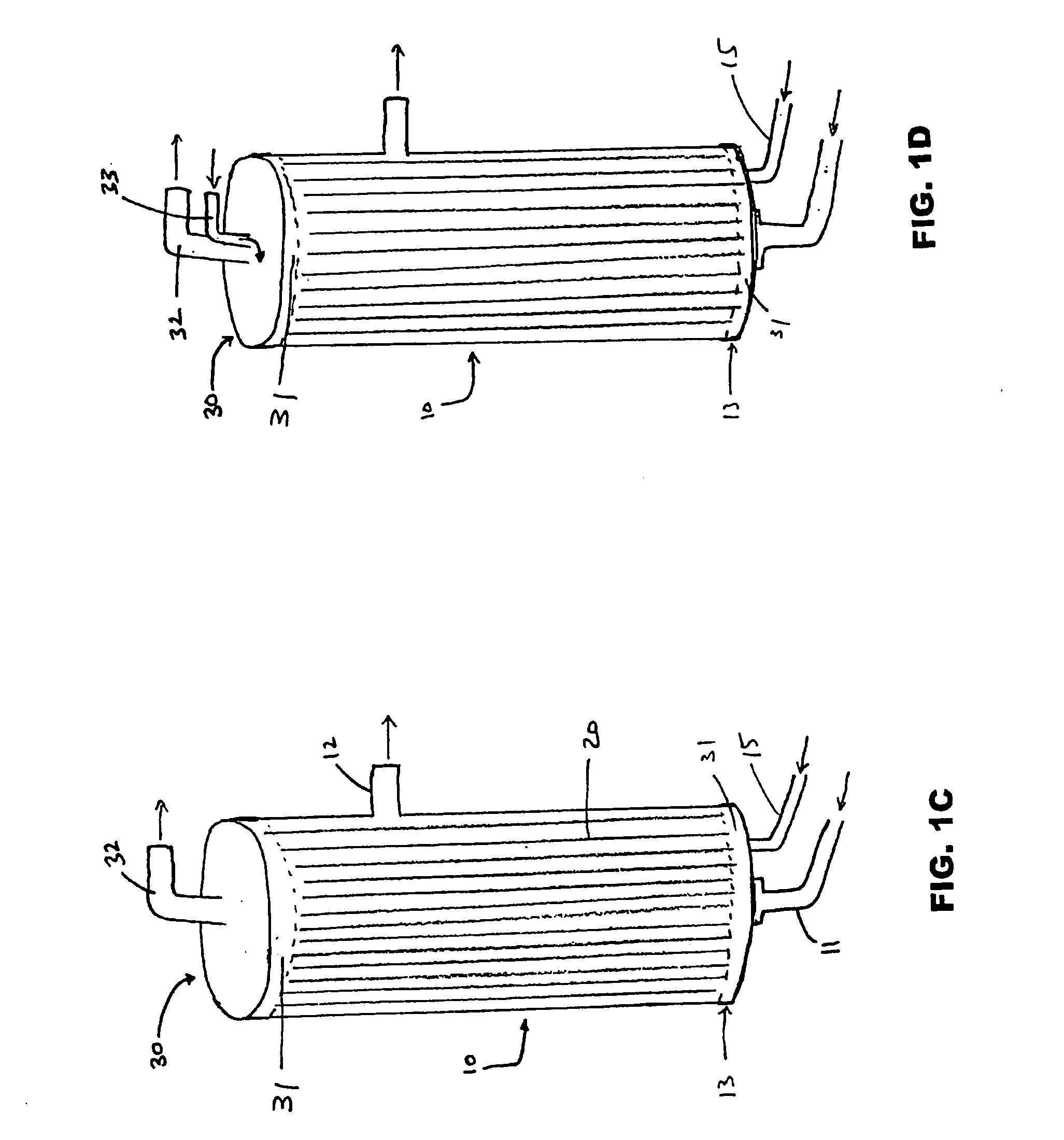Hemodilution cap and methods of use in blood-processing procedures
a technology of hemodilution cap and blood processing procedure, which is applied in the direction of dialysis, other blood circulation devices, and membranes, etc., can solve the problems of compromising the hemofiltrating process, unsatisfactory coagulation of blood, and blood concentration leaving the outflow tubing, so as to prevent hemoconcentration and stasis of blood, facilitate fluid mixing, and prevent coagulation
- Summary
- Abstract
- Description
- Claims
- Application Information
AI Technical Summary
Benefits of technology
Problems solved by technology
Method used
Image
Examples
Embodiment Construction
[0025] During blood-processing procedures, such as hemofiltration, hemodialysis, and hemodiafiltration, blood has a tendency to clot as it passes through processing equipment, particularly where it exits the outlet of a filter, due to hemoconcentration. In FIG. 1A, the hemofiltration device includes cylindrical housing 10 which contains filter fibers 20 that remove waste from blood passing through the fibers. It will be understood that any other suitable shape can be used for the housing. Housing 10 is equipped with entry cap 13 having blood inlet 11. Waste and ultrafiltrate that are removed from the blood exits the housing through waste outlet 12. Exit cap 30 is mounted on housing 10 opposite blood entry cap 13. Headspace 31 is formed in the gap between filter fibers 20 and cap 30 and between filters 20 and cap 13. Headspace 31 communicates with blood outlet 32. Each of the inlet 11 waste outlet 12 and blood outlet 32 are adapted for attachment to flexible tubing sections that conn...
PUM
 Login to View More
Login to View More Abstract
Description
Claims
Application Information
 Login to View More
Login to View More - R&D
- Intellectual Property
- Life Sciences
- Materials
- Tech Scout
- Unparalleled Data Quality
- Higher Quality Content
- 60% Fewer Hallucinations
Browse by: Latest US Patents, China's latest patents, Technical Efficacy Thesaurus, Application Domain, Technology Topic, Popular Technical Reports.
© 2025 PatSnap. All rights reserved.Legal|Privacy policy|Modern Slavery Act Transparency Statement|Sitemap|About US| Contact US: help@patsnap.com



